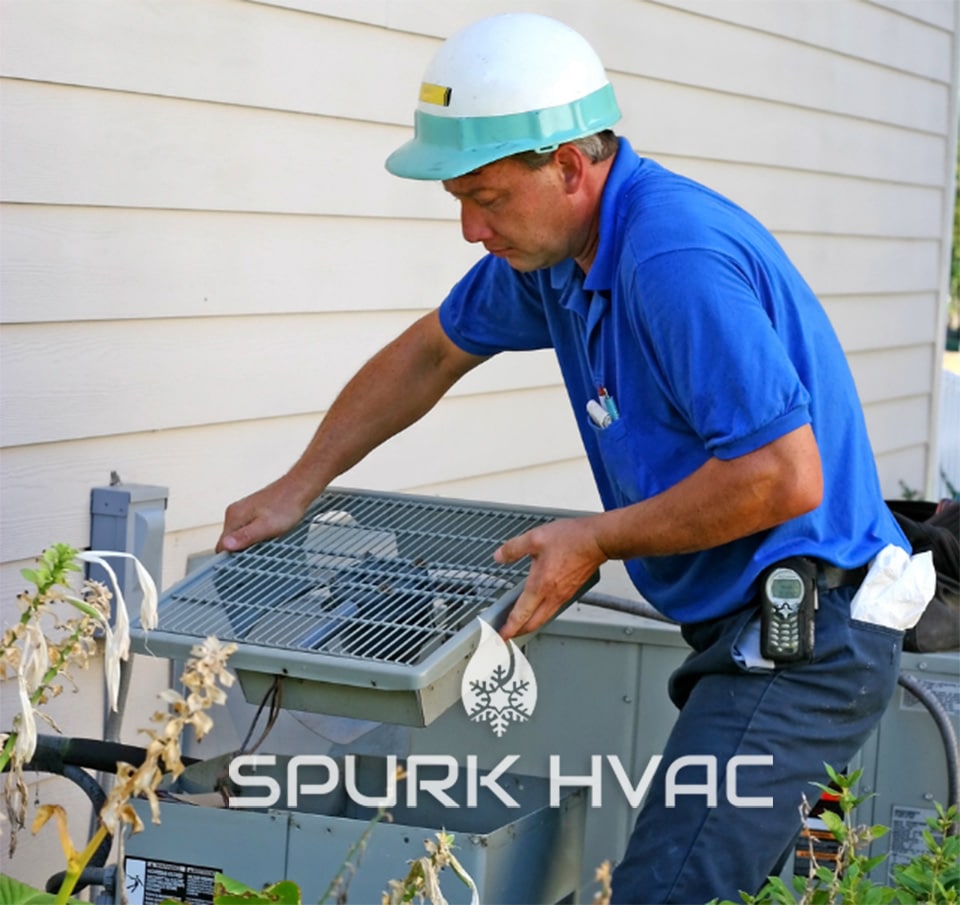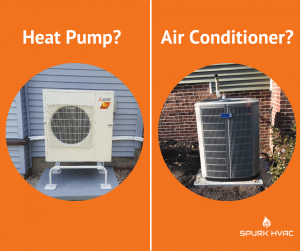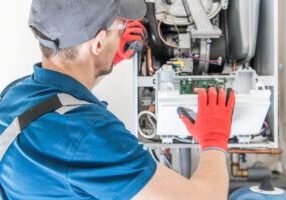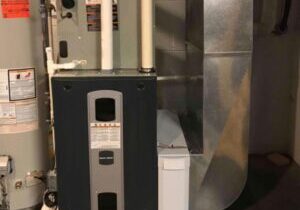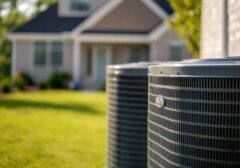HOW ARE HEAT PUMPS AND AIR CONDITIONERS SIMILAR?
When looking for an HVAC system to cool your home, either a heat pump or air conditioner will do the job. Both systems use compressed refrigerants to collect heat from inside your home as air passes over the coil in the air handler and transfer it outside. Heat pumps and air conditioners essentially move heat from inside your home to an outdoor location. It is often thought that air conditioners cool a home by producing cold air, but the truth is they cool your house by removing heat energy from the home, pumping it away to a location outside the home. Air conditioners pump heat out of a home, just like a heat pump when operating in cooling mode. See the similarities?
In fact, if looking at the outdoor unit of an air conditioner and heat pump system, it would be very difficult for the average person to tell them apart. So, from a cooling perspective, minus a few technical details, heat pumps and air conditioners are essentially the same when operating in cooling mode, with no significant difference in operation, efficiency, or energy costs.
DIFFERENCES BETWEEN A HEAT PUMP AND AIR CONDITIONER
While essentially identical in cooling mode, heating mode is a different story. Air conditioners do not provide heating, but heat pumps do. Thanks to a reversing valve in the outdoor unit, a heat pump can absorb heat energy from outside air, even in extremely cold temperatures, and transfer the heat inside the home, where it releases the heat into the air. A heat pump can heat and cool, but an air conditioner cannot, which is the primary difference between the two HVAC systems. An air conditioner is typically paired with a furnace to provide heat during the cold months. Together, an air conditioner and furnace are a complete heating and cooling system.
Although a heat pump can heat a home, when outside temperatures drop below freezing, the efficiency of a heat pump is affected as the unit requires more energy to maintain warm temperatures inside the home. Typical heat pump systems have an auxiliary electric heater added to the indoor unit to add supplemental heat when outdoor temperatures drop. However because electric auxiliary heating Is not very efficient, the addition of a furnace can be a solution to this problem, creating a system that relies on the heat pump as the primary heat source but automatically switches to the furnace when appropriate. You’ll often hear us refer to this as a dual-fuel or hybrid system.
WHICH SYSTEM IS RIGHT FOR YOU?
Both a heat pump and an air conditioner are a great choice, but one might be more appropriate for you, depending on your situation. Here are some things to consider when choosing a system to heat and cool your home.
COST TO PURCHASE AND INSTALL
While a heat pump system has a lower cost indoor unit, the outdoor unit can come with a higher upfront cost compared to an air conditioner. When considering cost, it is important to understand the total costs to install a system that can both heat and cool your home properly. The team at Spurk HVAC can help determine all of the costs involved.
ENERGY EFFICIENCY/COST TO OPERATE
In moderately cold outdoor temperatures, heat pump systems provide energy-efficient heating using only electricity (or if electricity is the only fuel source available). In these conditions, they can be less costly to operate compared to systems that use more expensive heating fuel sources such as oil or propane. As temperatures drop below freezing, the heat pump requires more energy to maintain comfort inside, reducing efficiency and increasing your electric bill. You can solve this problem by pairing a heat pump with a furnace, creating a Hybrid system. However, due to the higher initial cost for the heat pump unit, a hybrid system may be more expensive than a more commonly paired system of an air conditioner and furnace.
In cooling mode, both heat pumps and air conditioners come in models with high SEER ratings, providing energy-efficient cooling during the warm summer months. SEER ratings are like miles-per-gallon for a car. They give you a standard measure of efficiency so you can compare different models. The higher the SEER, the more efficient the unit. In heating mode, heat pump efficiency is expressed in HSPF. The higher the HSPF, the higher the efficiency. In many ways, the energy efficiency and cost to operate factor comes down to location. In areas with moderate temperatures, a heat pump is a better option for efficient heating than in areas with extremely cold winters. If you want a higher efficiency model, be sure to select one that has been ENERGY STAR® certified.
LONGEVITY
One important factor to consider is the longevity of the system. While there are a number of variables that greatly influence the life expectancy of an HVAC system, AC units typically last longer than Heat Pumps. The reason is that heat pumps both heat and cool a home, so they are used year-round. Air conditioners get a break during the cooler months when a separate heat source is used to heat the home. Keep in mind, some of the potential downsides of a shorter heat pump life expectancy may be offset by its ability to deliver efficient, money-saving heating during milder winter weather. Of course, becoming a Spurk HVAC Comfort Club Member can extend the life of your heat pump or air conditioning system and help keep it running at its maximum energy efficiency with annual maintenance.
ASK SPURK HVAC
Whether replacing an existing HVAC system for your home or purchasing one for the first time, there are several important differences to consider when choosing between a heat pump and an air conditioner. Besides choosing the best system for your situation, the size of the unit and its heating/cooling capacity will need to be determined. A proper evaluation of your home’s heating and cooling needs by a trained HVAC professional is the best way to determine the ideal option for you. Our estimators here at Spurk HVAC are available to help evaluate your situation and help you decide between a heat pump vs an AC system.
Book your service or free replacement consultation now!
ABOUT SPURK HVAC
Spurk HVAC was formed in 2018 and is located in Warrendale, Pennsylvania. We proudly serve Cranberry Twp., Wexford, Gibsonia, Mars, and the surrounding Greater Pittsburgh area.
We service all makes and models. If you are seeking a heating repair, heating system replacement, air conditioner repair, air conditioning maintenance, air conditioning replacement, or any other heating & cooling services. Whether you are looking for residential or commercial HVAC services, we look forward to any and all opportunities to become your preferred HVAC contractor.



